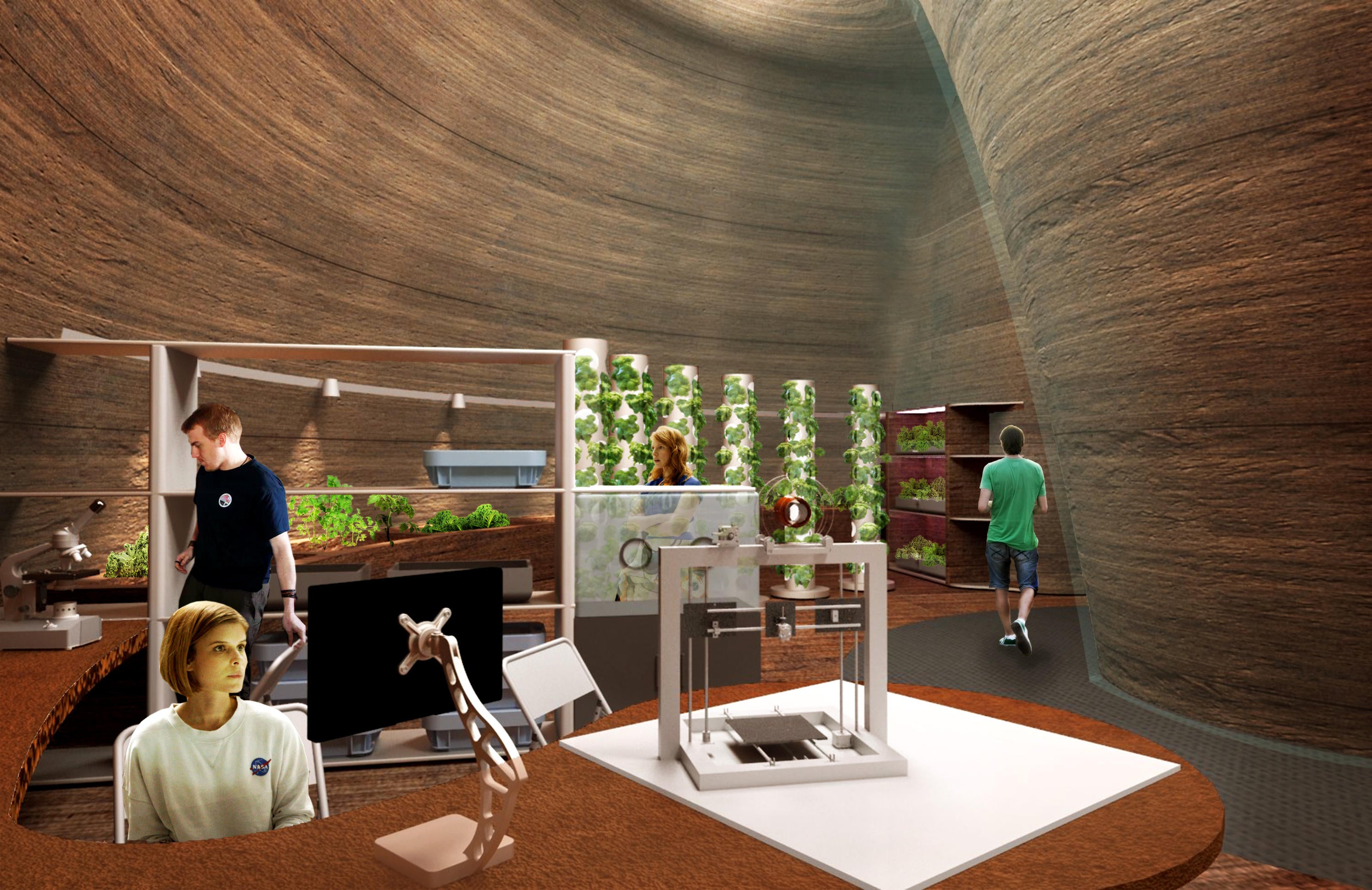
Of the thesis entitled: Ares Infinite – Creating a 3D Printed Design Vernacular for an Evolving Research Station on Mars
This
thesis
proposes
the
design
of
a
habitat
built
on
Mars.
It
speculates
on
the
usage
of
3D
print
technology
as
a
construction
method
to
address
the
extreme
environmental
conditions
of
the
planet,
as
well
as
the
changing
architectural
and
programmatic
demands
of
an
ever
evolving
Martian
research
station.
Collectively, our design inclinations for interplanetary habitation tend to be reminiscent of metal pods which are modular, prefabricated, and adaptable. Although these designs are effective in places like on the International Space Station, Mars poses drastically different site conditions.
Given its incredible distance from Earth, a developing Mars settlement will need its architecture to be constructed using in-situ materials to relinquish dependence on materials sent from Earth. Furthermore, the Martian base will require its method of procurement to also be flexible and repeatable to suit the changing research needs and occupancy. 3D printing technology offers an ideal solution to these problems since this technology allows for a hands-off, and highly flexible construction method.
This thesis will investigate the potential for an efficient evolution of a Mars habitat using 3D printing as a strategy; starting at the initial conception of the habitat as a temporary exploration outpost, then growing into a larger research station with a population comparable to those of the Antarctic research communities on Earth.
Supervisor:
Terri Boake, University of Waterloo
Committee Members:
David Correa, University of Waterloo
Philip Beesley, University of Waterloo
External Reader:
Vincent Hui, Ryerson University
The
committee
has
been
approved
as
authorized
by
the
Graduate
Studies
Committee.
The
Defence
Examination
will
take
place:
Monday,
April
23,
2018
9:00
AM
ARC
2003
A
copy
of
the
thesis
is
available
for
perusal
in
ARC
2106A.